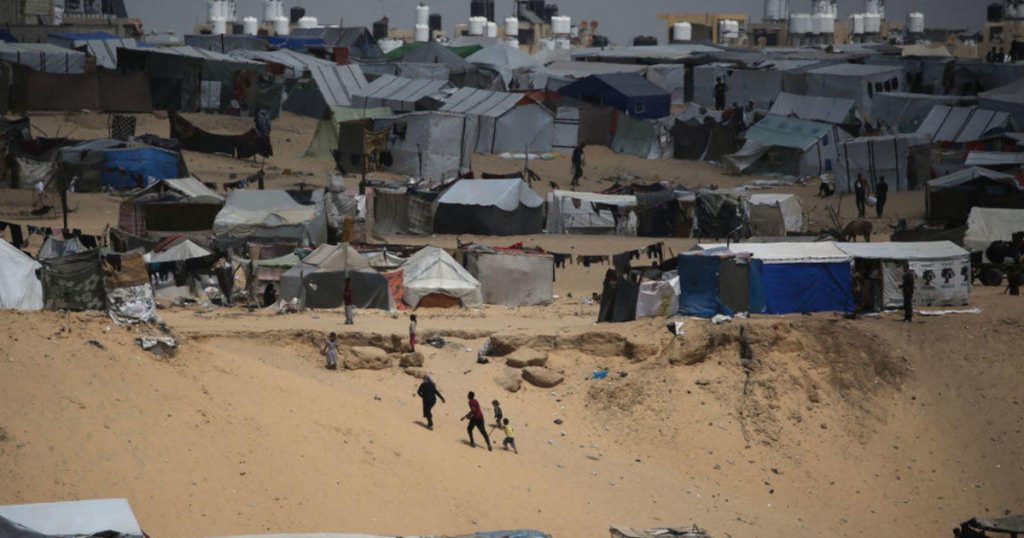A delegation from the militant group Hamas was in Cairo for cease-fire negotiations with Israel, but no progress was made on Saturday. Israel stated that it would not send a delegation until Hamas responds to its latest proposal, which includes a swap for hostages. The proposed deal would result in a several-week long pause in hostilities, with Hamas releasing hostages in exchange for the release of Palestinian prisoners by Israel. The pressure to reach a deal is mounting as the humanitarian crisis in Gaza worsens, and Israel threatens to launch an offensive into Rafah, the southernmost city in the territory.
The stakes are high to find a halt to the nearly seven-month-long conflict, as over a million Palestinians are sheltering in Rafah and facing a full-blown famine in northern Gaza. Mediators have reported signs of compromise, but the key question remains whether Israel will accept an end to the conflict without completely destroying Hamas. Egyptian and American mediators have indicated progress in recent days, but there is still no agreement on a complete cessation of hostilities. Hamas has demanded a complete end to the conflict and withdrawal of all Israeli forces from Gaza.
Secretary of State Antony Blinken visited Israel for the seventh time since the conflict began, expressing the Biden administration’s determination to see a cease-fire agreement reached between Hamas and Israel. He also urged for American support, as there are still hostages held in Gaza, including five U.S. nationals. Meanwhile, the White House has advised Israel to limit its operation in Rafah, as a large-scale military offensive could lead to further civilian casualties and displacement. The conflict began with a Hamas attack in southern Israel, resulting in abductions and deaths, and Israel is committed to an invasion of Rafah, refusing to end the conflict in exchange for the release of hostages.
The situation on the ground continues to be dire, with regular casualties from Israeli airstrikes in Gaza. The Health Ministry in Gaza has called on the International Criminal Court to investigate the death of a Gaza surgeon in Israeli custody, highlighting the challenges faced by civilians in the conflict zone. The United Nations has warned of imminent risks to hundreds of thousands of civilians if Israel proceeds with the offensive in Rafah, which is a critical entry point for humanitarian aid. The U.N. World Food Program has emphasized the need for a cease-fire and increased aid to prevent famine in the region. Israeli efforts to deliver aid to northern Gaza have been hindered by settlers and Hamas militants.
Overall, the cease-fire negotiations between Hamas and Israel remain complex, with a focus on hostage swaps and the possibility of a halt to the conflict. The humanitarian crisis in Gaza continues to escalate, adding urgency to the need for a resolution. The international community, including the United States and the United Nations, is advocating for peace and increased aid to alleviate the suffering of civilians caught in the crossfire. The situation is delicate, as both sides remain committed to their positions, and the potential for further violence looms if a lasting agreement is not reached.


